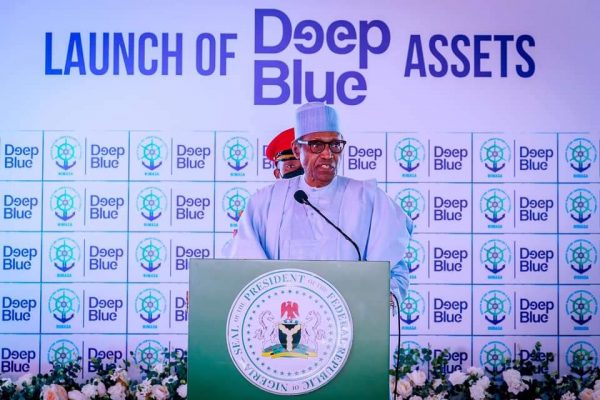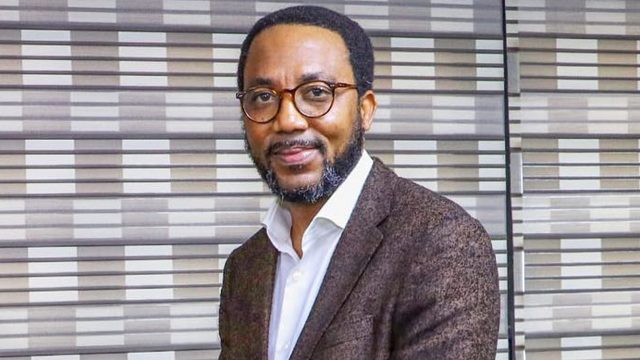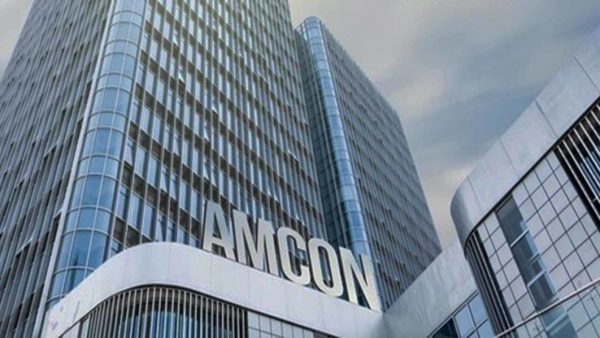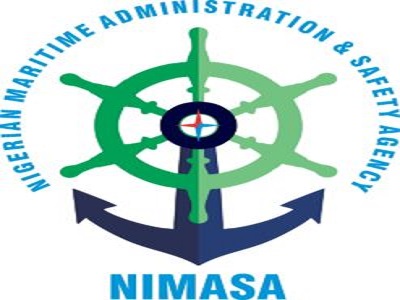Nigeria Stages War Against Piracy, Loses N2billion As Buhari Visits Apapa

- Shippers, agents lament losses at Lagos ports
- The Miracle Of Apapa Traffic
- Unanswered questions of Deep Blue Project
By Kenneth Jukpor
Nigeria officially made a statement of determination on Thursday, last week, towards taming the menace of piracy and sea robbery in her territorial waters and the Gulf of Guinea (GoG) with the global inauguration of an integrated national security and waterways protection infrastructure, called Deep Blue Project, amid the fear of sustainability by stakeholders.
The event also left a bag of hope and hopelessness for the global and local shipping communities with the expected impact on socio-economic activities.
In spite of the hope for better days ahead the event spewed, shippers and port users raised worries that the President’s visit shut down port activities, consequences being additional cost on cargo delivery and a wanton loss of an estimated N2billion by the economy.
Flagged off by President Muhammadu Buhari, with a presidential fanfare in Apapa, Lagos, Nigeria, the assets procured from an Israeli firm, Homeland Security International (HLSI), at the cost of $198 million (about N75billion at N380 exchange rate) are made up of four components of the project for the land, sea, air and additional assets for comprehensive management of maritime security threats.
Speaking at the occasion, the Chief Host, Minister of Transportation, Rt. Hon. Chibuike Amaechi, stated that the conceptualization of the Deep Blue Project resulted from his assessment of the critical role of maritime in Nigeria’s effort to diversify its economy.
Amaechi pledged that the maritime security assets being deployed would be maintained for the country’s short and long term economic and security benefits.
“The Project Management Team shall work out a framework to ensure maintenance and sustainability of the project,” the Minister stated.
He said, “When I assumed office as the Minister of Transportation in 2015, I carefully evaluated the transportations requirements of the country and the overall state of the Nigerian economy and made a clear assessment that the development of the maritime sector was the future of the Nigerian economy in view of the worldwide decline in fossil fuel requirements due to climate change and the oil industry’s uncertainties.”
Amaechi stated that to achieve the objective of a pivotal role for maritime in the country’s economic development effort, “I developed an agenda to secure the channels of maritime growth, review shipping cost, and expand indigenous participation in the maritime sector in order to facilitate increase in the contribution of the sector to national revenue and GDP. To achieve this, the Ministry of Transportation developed an Integrated National Security and Waterways Protection Infrastructure, otherwise called the Deep Blue Project.”
The Minister added that with the security concern settled he would now focus on indigenous participation in the maritime trade, implying that the Cabotage Vessel Finance Funds (CVFF) and cabotage trade will get the attention of the government soon.
Meanwhile, the Director General of the Nigerian Maritime Administration and Safety Agency (NIMASA), Dr. Bashir Jamoh, said the completion and launch of the Deep Blue Project, which commenced in 2018, represented the fulfillment of a central mandate of his administration.
Jamoh said: “When I took up office with my executive team in 2020, we set out on a Triple S agenda of Maritime Safety, Maritime Security, and Shipping Development. We devoted most of our energy and focus in our first year to addressing the problem of maritime security. Without the security of our seas, no meaningful seaborne trade or shipping economy can be possible. Securing our seas became a pressing mandate. Today marks the fulfillment of that mandate.”
He said upon assumption of office as Director General of NIMASA, “and at the inauguration of the agency’s Governing Board, we were given a clear mandate to fund and deliver the Deep Blue Project.”
In his goodwill message, Secretary General of the International Maritime Organization (IMO), Kitack Lim, extolled Nigeria’s role in the effort to achieve security in the Gulf of Guinea. Lim said the launch of the maritime security infrastructure was a major development in the war against piracy.
He said the Deep Blue Project reflected Nigeria’s determination to lead the fight against piracy and armed robbery, not only in its national waters, but also in the Gulf of Guinea.
Lim assured that IMO was committed to supporting Nigeria in the search for a safe and secure maritime industry.
Hopes And Hopelessness
Deep Blue Project represents the biggest hope for Nigeria in the bid to curb piracy, oil bunkering, illegal ship-to-ship operations, delisting of Nigeria on the war risk zone and removal of the war risk insurance premium, enhanced safety of the Eastern ports corridors and anticipated improved patronage of Eastern seaports. The Country Chair, Shell Development Company of Nigeria, Mr. Osagie Osunbor, who obviously represented the International Oil Companies (IOCs), in his goodwill message emphasized that a lot had to be done to get the waters safe in GoG, saying that the Deep Blue Project portend san end to piracy and insecurity. “And that will improve ease of doing business and investment inflow”, he noted.
While these expectations are lofty, there remains a stint of skepticism among maritime industry experts that the human elements and behavioral tendencies of the operators of the Deep Blue Project may reoccur as observed in the management of Electronic call- up system (Eto) on Lagos ports access roads, recently.
The illicit trade on the seas, piracy and robbery at sea, as well as proscribed private security activities at anchorage and on the high seas aren’t sponsored by riff- raffs, but highly placed Nigerians with influence in the Nigerian Navy and the presidency.
While the Minister of Transportation, Hon. Rotimi Amaechi noted that the financing, maintenance and sustainability of the Project would be developed by a Committee saddled with that responsibility, there are also fears that the sums required for maintaining the project would rock NIMASA’s budget.
Experts are perplexed by the yet-to-be explained budgetary provision for maintenance of the assets. While some maritime veterans expect NIMASA’s budget to be expanded to include the new cost, others assert that the monetary provision should be captured in the Ministry of Defence budget.
Although some of the assets have already been deployed to provide security on the Anchorage for gratis as the Federal Government dismissed private security outfits, there are concerns that the Deep Blue Project assets may not generate sufficient funds for its sustainability.
Funding Deep Blue Project
In a bid to unravel the monetary provisions for the Deep Blue Project, MMS Plus reached the NIMASA Director General, Dr. Jamoh who explained that Section 19 of the SPOMO Act caters for the funding of the maritime security project.
The SPOMO Act, Section 19(1) stipulates that: “The agency (NIMASA) shall, under the supervision of the Minister, establish and maintain a Fund to be known as the Piracy and Maritime Offences Fund (in this Act also referred to as ‘the Fund’). (2) The Fund shall be used for the implementation of this Act”
Subsection 3, further outlines monies to be paid into the Fund as “a. such money as may in each year be approved by the Federal Government for the implementation of the Act; b. gifts, financial contributions by beneficiaries of the services of the maritime law enforcement agencies duties under this Act; c. 35% of the proceeds of the sales of any property seized and anything forfeited under this Act including instruments used in the commission of crimes and of criminal activity under this Act; d. contribution from the maritime fund under NIMASA; e. contribution from the CVFF under the Coastal and Inland Shipping (Cabotage) Act”
Noting that Deep Blue Project was launched after budgetary provisions for 2021 has been concluded and SPOMO Act hasn’t amassed sufficient finances to cater for the mighty assets of Deep Blue Project, our correspondent further quizzed the NIMASA boss on the sustainability and Dr. Bashir Jamoh revealed that the security contract has logistics support for one year.
According to SPOMO Act, NIMASA is expected to keep proper accounts “in the form which conforms with accepted standards of its receipts, payments, assets and liabilities concerning the performance of its functions under this Act and shall submit the accounts annually for editing by a qualified auditor in accordance with the guidelines of the Auditor-General for the Federation.”
Economic Impact Of Buhari’s Fanfare
While President Muhammadu Buhari made history with his first visit to the port as President, his visit didn’t bring succor to port operators. Contrarily, an estimate of N2billion losses is believed to have been recorded by freight agents and their importers as Lagos port activities were suspended when Apapa port hosted Buhari.
MMS Plus observed that freight agents weren’t allowed to access the ports until 3pm on Thursday amid tight security and the curfew had begun the previous day as the port terminals closed earlier to vacate the premises for scrutiny and preparation for the Presidential visit.
Speaking with our correspondent on the development, the Public Relations Officer (PRO), National Association of Government Approved Freight Forwarders (NAGAFF), Mr. Stanley Ezenga described President Buhari’s visit as an additional economic burden on freight forwarders.
His words: “They just punished people, especially freight forwarders because we couldn’t access the ports. Every freight agent with cargo in Apapa port would pay demurrage for not coming to pick their cargoes, whereas there was no opportunity to access the ports because of Buhari’s visit.”
According to him, freight agents and port users would have been consoled if the President had witnessed the port access crisis and given assurances to address it, but he lamented that such opportunity wasn’t there because the regulatory authorities forced the truckers to vacate the roads.
“Most terminals worked half day yesterday (Wednesday) amid preparations to vacate the port premises for Buhari’s visit on Thursday. Those who could have written Terminal Delivery Order (TDO) on Wednesday couldn’t because the terminals closed earlier and freight agents couldn’t access the ports because of the visit on Thursday,” Ezenga said.
He, however, noted that after the last effort of freight forwarders to down tools at Lagos ports, finance experts had quoted N2billion losses per day.
The NAGAFF spokesman also lamented that it was ironic that roads were cleared to receive President Muhammadu Buhari but he accessed Apapa via rail.
Also speaking with our correspondent, the President of Women’s International Shipping and Trading Association (WISTA) Nigeria, Mrs. Eunice Ezeoke described Thursday’s port activity as an abnormal circumstance.
Ezeoke, who retired from Nigerian Ports Authority (NPA), revealed that during her 35 years work experience at the Authority over five presidents had visited and received with deliberate measures to clear the port access roads and suspend port activities.
“If you check what happened during the visit, you would observe that the ports weren’t operational during the visit. The Police and other military personnel forced the trucks out of the roads and people also couldn’t access the port during that period,” she said.
The Miracle Of Apapa Traffic
A huge miracle occurred at the Apapa port environs ahead of President Muhammadu Buhari’s arrival to commission the Deep Blue Project at ENL Terminal in Lagos.
This miracle was the shocking evacuation of trucks littering the port access roads as only one articulated truck was found close to the roundabout at wharf junction. The port access road, from Marine Bridge to Apapa port gate was devoid of trucks.
If these trucks could be forced off the roads on occasions when the President is expected to visit the ports, then a lasting solution could be deployed with the trucks staying where they were until their services are needed at the ports.
Our correspondent also observed a serene ambience at the ports as all kiosks and petty trading were jettisoned at the port environs.
While the serenity and ease of access shocked port users, this has become a norm to industry stakeholders who have noted the recurring dissipation of the traffic menace each time the President, Vice President or Minister of Transportation was visiting the ports.
A port operator, who preferred anonymity, told our correspondent that not even on Christmas day has the Apapa port access been so devoid of traffic bottlenecks in the last decade.
“When I drove in this morning, I wondered if I was driving into Apapa having planned to spend at least 30 minutes on the Apapa link bridge, not even on Christmas day has this road been so free from traffic congestion,” he said.
Recall that the Executive Vice- Chairman of the Presidential Task Team, Comrade Kayode Opeifa argued on several occasions that the activities leading to the traffic were artificial and skewed to favour terminal operators and shipping lines.
Opeifa also lamented that his team had been hindered by this because data was key to proper planning with a view to solving the problem of Apapa port traffic.
His words: “The bane of the traffic gridlock is that there is no data. Those who have data aren’t willing to share it, while others don’t have this data. You need data to be able to measure performance and verify if things are getting better or worse. You need data to know the number of trucks transiting the route on a daily basis. You need data to know the category of trucks that enter the ports and terminals. This data would also help in planning the call-up system and input into technology.”
“You see their truckers struggling to get ahead of each other and in doing that they shortchange the system. You find someone who ought to be at the port by 12noon comes in before 10am and obstructs someone who has consignment to pick by 11am. There is only one entrance to the ports so this becomes a huge challenge. Sometimes GDNL truckers want to access the terminal but it is blocked by AP Moller and it could be the other way too. There shouldn’t be rivalry, at least, not at the ports because the market is huge enough to take their products.”
The Deep Blue Project was initiated by the Federal Ministry of Transportation and the Ministry of Defence with the implementation mandate vested on the NIMASA in conjunction with the Armed Forces, the Nigeria Police, Department of State Services, and other security agencies.
Conceived in 2017, it has the aim of preventing illegal activities in Nigeria’s Exclusive Economic Zone (EEZ), enforcement of maritime regulations, enhancement of safety of lives at sea, and prevention of illegal activities in the inland waterways.
The air assets include two special mission aircrafts (SMA) for surveillance of the EEZ, three special mission helicopters (SMHs) for search and rescue, and four unmanned aerial vehicles (UAVs).
The land assets are, the C4i Centre, 16 armoured vehicles for coastal patrol, and a 340-strong maritime security unit personnel specially trained for interdiction, while the sea assets comprise two special mission vessels (SMVs) and 17 fast interdiction boats (FIBs).







